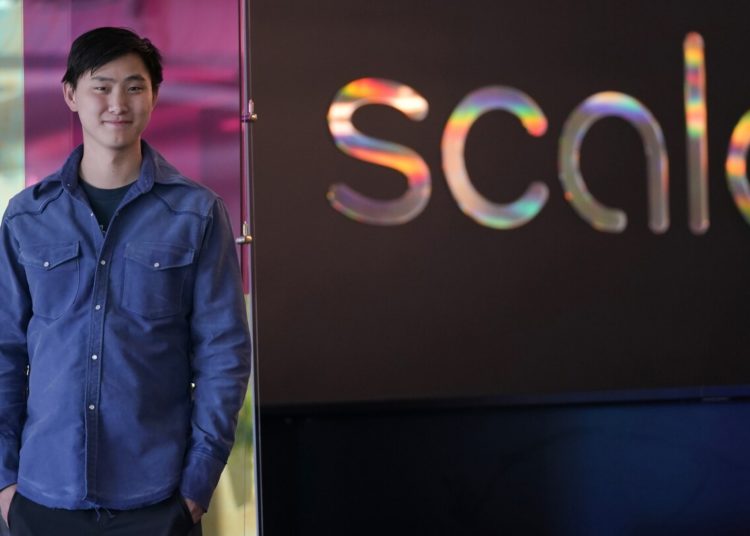The Rise of AI Impostors: A Threat to High-Level Officials

The Rise of AI Impostors: A Threat to High-Level Officials
In a recent State Department cable, it was revealed that an imposter posing as Secretary of State Marco Rubio used AI technology to contact three foreign ministers, a U.S. governor, and a member of Congress. This alarming incident highlights the potential dangers of AI impostors in the political realm.
The Imposter's Tactics
The AI impostor was able to convincingly mimic Rubio's voice, making it difficult for officials to detect the deception. This raises concerns about the potential for malicious actors to use AI to manipulate and deceive high-level officials.
The Implications
The incident also sheds light on the need for increased security measures to protect against AI impostors. As AI technology continues to advance, it is crucial for officials to be vigilant and cautious in their interactions with AI-generated voices.
About the People Mentioned
Marco Rubio
Marco Rubio is an American politician born on May 28, 1971, in Miami, Florida, to Cuban immigrant parents. He gained prominence as a leading figure in the Republican Party and currently serves as the 72nd U.S. Secretary of State, a position he assumed in January 2025 after unanimous Senate confirmation[1][3]. Rubio's political career began in Florida, where he served as a city commissioner in West Miami and later as the Speaker of the Florida House of Representatives. During his tenure as Speaker, he implemented several reforms, including compiling "100 Innovative Ideas for Florida's Future," which led to significant legislative changes[2]. He was elected to the U.S. Senate in 2010, representing Florida until 2025. Rubio has been a key voice in U.S. foreign policy, particularly concerning Latin America, China, and the Middle East, and has championed bipartisan legislation on issues like immigration and human rights[1][4]. Rubio gained national attention for his role in the bipartisan "Gang of Eight" immigration reform effort and his 2016 presidential campaign, which ended with his endorsement of Donald Trump in the Florida primary[1][3]. He has also been a proponent of conservative populism, aligning himself with Trump's policies[3]. Recently, Rubio was nominated by Trump to serve as Secretary of State and, in April 2025, was also named acting National Security Advisor[3]. Rubio is married to Jeanette Dousdebes Rubio, and they have four children together. He holds a bachelor's degree from the University of Florida and a law degree from the University of Miami School of Law[4]. His appointment as Secretary of State marks a significant milestone, as he is the first Latino to hold the position[1].
About the Organizations Mentioned
State Department
The **U.S. Department of State** is the principal federal agency responsible for shaping and executing American foreign policy and diplomacy worldwide. Established in 1789 as the first executive department, it serves as the lead institution for conducting U.S. international relations, advising the President, negotiating treaties, and representing the country in global organizations such as the United Nations[2][3][6]. The department is headed by the Secretary of State, who acts as the President’s chief foreign policy advisor and top diplomat, currently Marco Rubio as of 2025[2]. The State Department's core mission is to **promote and protect U.S. interests abroad** by fostering peace and stability in critical regions, opening foreign markets to create American jobs, and addressing global challenges like climate change, terrorism, nuclear proliferation, human trafficking, and humanitarian crises[1][4]. It manages a vast network of embassies, consulates, and diplomatic missions worldwide, safeguarding American citizens overseas and facilitating international cooperation on economic, security, and environmental issues[5]. A key component closely linked to the State Department is the **U.S. Agency for International Development (USAID)**, created in 1961 to administer economic and humanitarian assistance to developing countries. USAID works to end extreme poverty, promote democracy, improve global health, food security, environmental sustainability, and humanitarian relief, aligning its programs with the State Department’s foreign policy goals[1]. With an annual budget of around $38.8 billion in fiscal year 2024, the State Department plays a critical role not only in diplomacy but also in advancing technological collaboration, international trade, and global health initiatives, making it highly relevant for business and technology sectors interested in geopolitical stability and international partnerships[3]. Notable programs include the Professional Fellows exchange, fostering cross-cultural professional development between U.S. and foreign leaders, highlighting the department’s role in building long-term global partnerships[2]. The State Department continues to adapt in an era of rapi

















